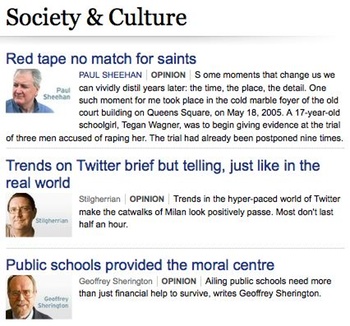[This is a slightly edited version of the article written for “Stories: from The Local Government Web Network”, issue 3, August 2011, which was distributed at the LGWN’s conference in Sydney on 18 August. Some material in this article also appears in Tweeting your way out of Paranoia, the closing keynote presentation I delivered.]

If you’re not yet at least experimenting with Twitter, the real-time social messaging service, you should be.
Suppress the corporate paranoia. It’s a lot easier than you might think. And while Twitter does get far more attention than its relatively small size might suggest — truly active Twitter users number perhaps 20 million globally compared with Facebook’s 750 million active users and counting — it punches well above its weight in terms of connecting with influential community members.
Twitter may not ever become the core real-time service used by the masses. Or if it does, it may only be for a few years. You only have to look at the last decade to see the then-leading MySpace surpassed by Facebook in 2008, just four years after Facebook was founded. Google’s launch of Google+ in June this year has generated plenty of speculation that the search and advertising giant’s foray into social networking will in turn wipe Facebook off the planet. Who knows?
There will always be some real-time social messaging service, however. Whether that’s Twitter as a stand-alone service, or whether we all end up using a real-time component of Facebook or Google+ or something that has yet to be deployed — none of that matters. The principles and practices of real-time messaging will doubtless end up being much the same.
Anything you might do with Twitter will be easy to migrate to any other real-time messaging system. The lessons you learn will carry across too.
Continue reading “Twitter: a guide for busy paranoids”




